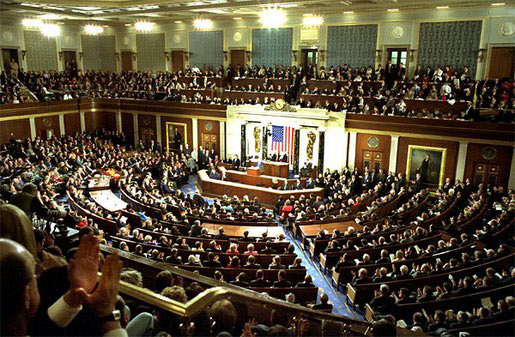
Congressional consensus on job training ignores important FBO right
Congress is nearing agreement on a major overhaul of federal job-training programs, but the revised law will remain biased against religious organizations. Federal job training efforts are sprawling and of uneven effectiveness at best–they are often used as examples of duplicative and wasteful spending. The last major overhaul was in 1998, when the Workforce Investment Act (WIA) was adopted. A year ago, the Republican-led House adopted a reform bill, the SKILLS Act but a Democratic reform bill stalled in the Senate. The new reform bill, The Workforce Innovation and Opportunity Act, was developed by a bi-partisan House-Senate team.
Whatever it changes and however much good it does, the consensus bill leaves a big problem untouched. WIA includes an expansive non-discrimination requirement that applies not only to job trainees, ensuring that everyone needing help can receive it without being excluded, but also to the private organizations that play such an important part in job training. Prohibited bases of discrimination include religion. Thus the many faith-based organizations that consider religion when hiring their own staff, but that serve whomever needs assistance, are excluded from partnering with the government. And yet many of these same faith-based organizations offer various valuable forms of job training.
Congress previously tried to reauthorize and reform WIA, in 2003 and 2005. Both times, strong efforts were made to narrow the non-discrimination language so that the law would no longer exclude religious organizations that hire according to religion–and the fight about religious hiring was a key reason that no consensus could be reached. It may be that reformers this time, no matter how sympathetic to the religious hiring freedom, decided that a change in federal job training programs is so important that this other reform would have to be left for another day.
Fortunately, it is now clear, though it was not so obvious in 2003 or 2005, that the federal Religious Freedom Restoration Act (RFRA) makes it possible for a faith-based organization that is committed to religious hiring to participate in federal programs that include a ban on religious (and other) job discrimination. A 2007 Department of Justice memo lays out the reasoning, and the Obama administration just last month published guidance on how, in the Violence Against Women Act program, which has a similarly broad non-discrimination requirement, RFRA makes it possible for religious hiring still to take place.
It would be best for Congress to eliminate the ban on religious hiring in our federal workforce programs, but until it does, faith-based organizations should take note of the RFRA override.
One other note: the House and Senate consensus bill also simply adopts another bad idea from the current law (WIA): a ban on having job trainees work on any facility used for worship or for sectarian instruction. According to more recent constitutional interpretation and federal policy, that’s an overly broad prohibition, so Congress ought to narrow it as much as possible. Next time?
